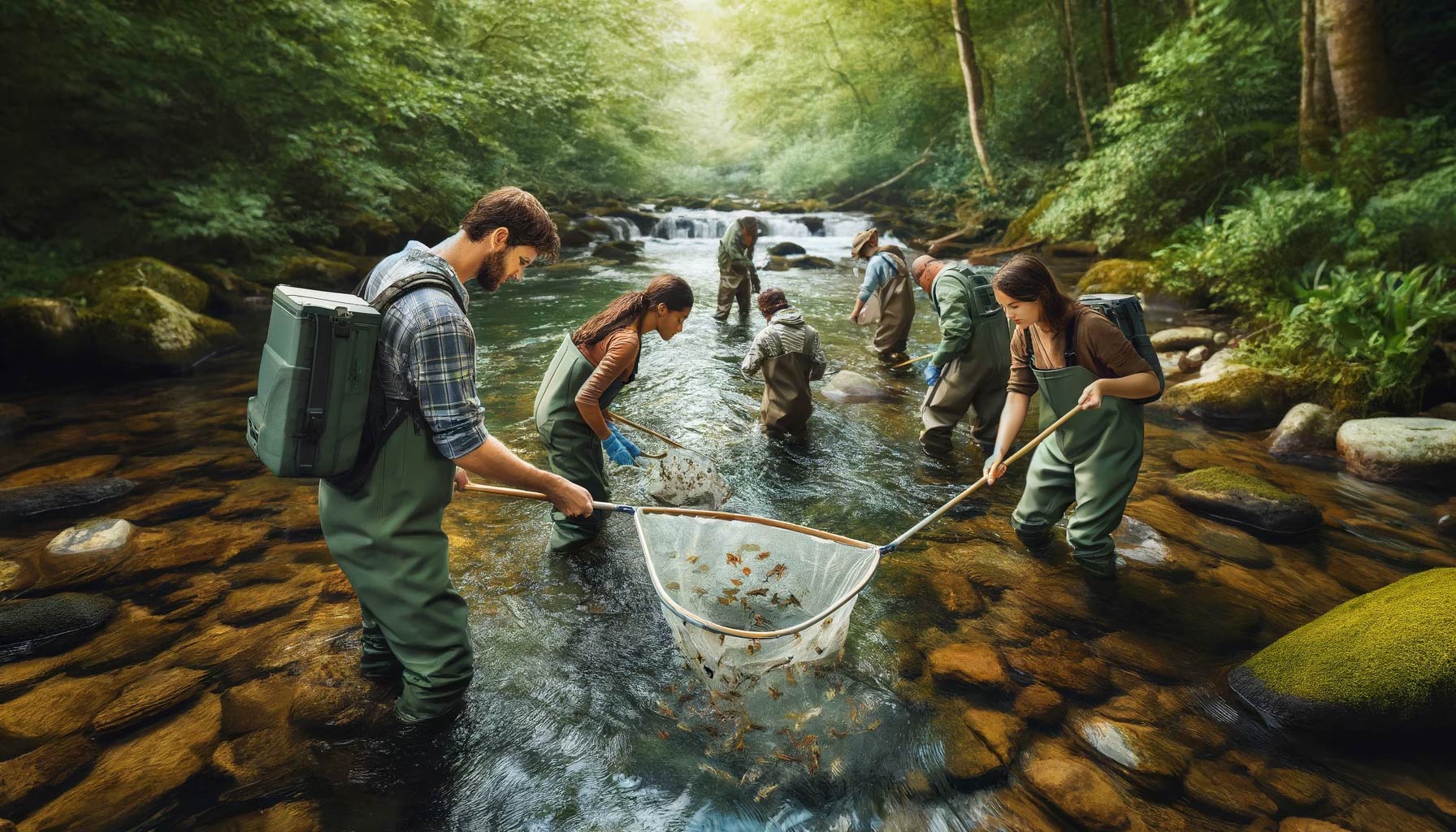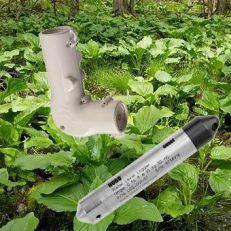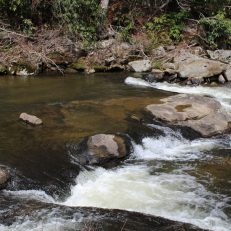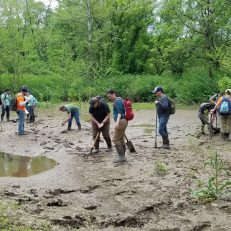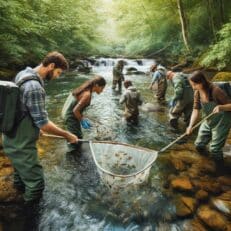Product Description
Unlock the mysteries of stream and wetland ecosystems with our intensive three-day workshop designed for professionals involved in Clean Water Act jurisdictional determinations. Dive deep into the fascinating world of macroinvertebrates, learning essential taxonomy, field collection techniques, and laboratory identification skills. Join us for an engaging, hands-on experience that will enhance your expertise and elevate your environmental assessments.
Course Location :
Class/Lab: The Swamp School, Apex, North Carolina
Field Sites: Various Streams and Wetlands in the Raleigh Durham Area
Course Overview:
Day 1: Lecture on Macroinvertebrate Taxonomy
- Introduction to Macroinvertebrates: Understand the role of macroinvertebrates in aquatic ecosystems and their importance in environmental assessments.
- Taxonomic Classification: Learn the hierarchy of macroinvertebrate taxonomy from phylum to family.
- Identification Techniques: Get acquainted with the morphological features used to identify different macroinvertebrate families.
- Practical Examples: Review real-world examples and case studies to solidify your understanding.
Day 2: Field Collection and Identification
- Site Selection and Preparation: Learn how to select appropriate sampling sites and prepare for fieldwork.
- Field Equipment Use: Hands-on training with sampling equipment such as kick nets, D-nets, and Surber samplers.
- Sampling Techniques: Practice different sampling methods, including qualitative and quantitative approaches.
- Field Identification: Conduct on-site identification of macroinvertebrates using field guides and keys.
- Sample Preservation: Learn proper techniques for preserving samples for laboratory analysis, including the use of ethanol and labeling.
Day 3: Laboratory Identification and Data Analysis
- Microscope Training: Receive training on using dissecting microscopes for detailed examination of samples.
- Laboratory Identification: Identify collected macroinvertebrates to the family level using dichotomous keys and identification guides.
- Data Recording: Learn how to accurately record your findings and maintain organized data sheets.
- Data Analysis: Introduction to analyzing macroinvertebrate data for environmental assessments, including metrics such as diversity indices and pollution tolerance scores.
- Case Studies: Apply your skills to case studies, interpreting data to make informed decisions for Clean Water Act jurisdictional determinations.

